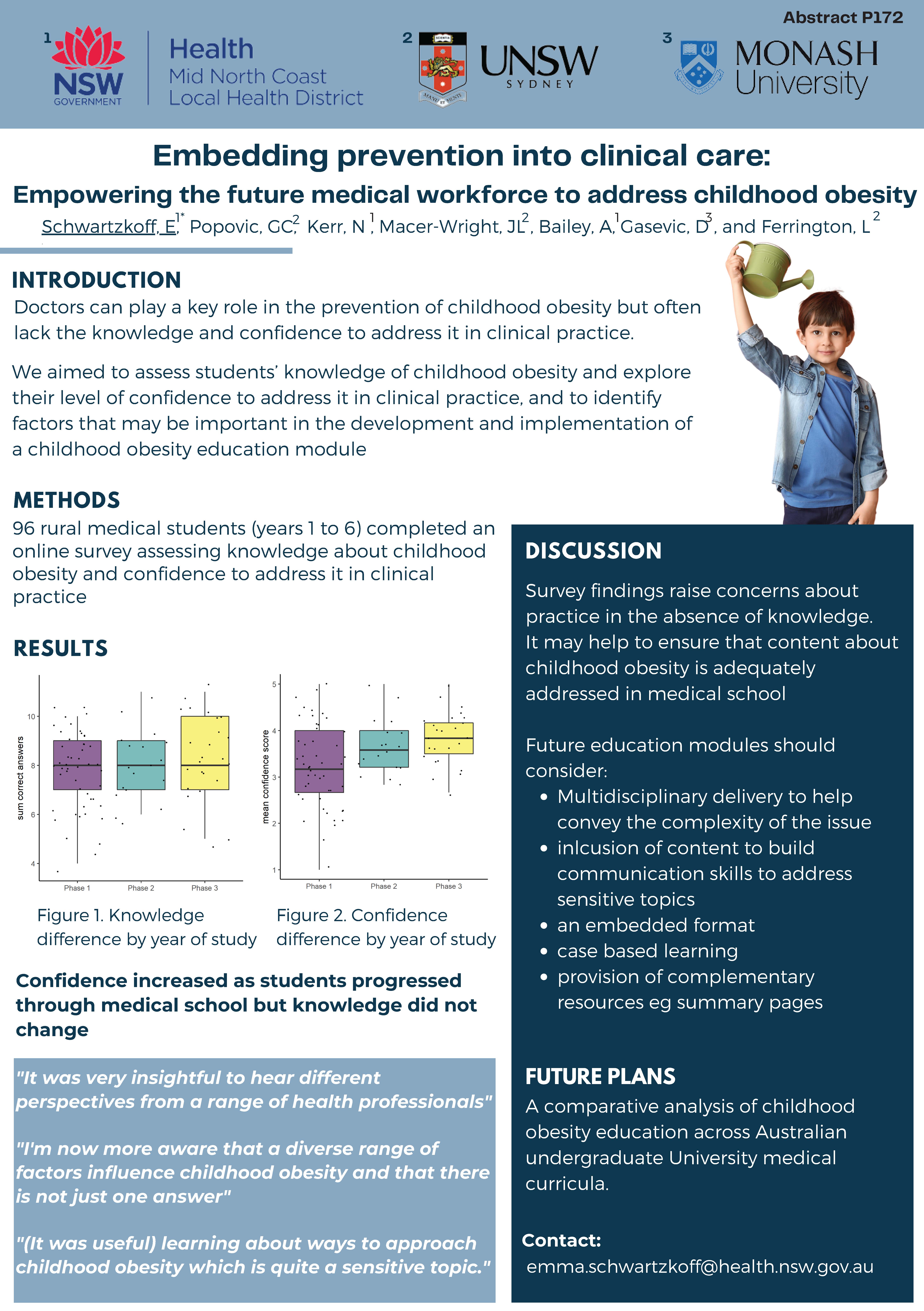Collaborating with the NSW MNC Local Health District (MNCLHD) Director of Research and the local health promotion team, and a collaborator from Monash University, I am leading a small, interdisciplinary research group to improve the medical curriculum in relation to childhood obesity, aiming to produce doctors who are confident and unbiased in the treatment of these patients. Unfortunately, although doctors value weight management, the literature suggests they under use available services and are biased against obese people, which suggests a gap in the Medicine curriculum. Our successful pilot project in 2019/20 aimed to change health professionals’ grass-roots perception of weight management by improving the knowledge of medical students throughout their undergraduate training. This project’s future directions include embedding our newly-designed lecture material and content into the Medicine curriculum and extending the program to students in Allied Health Professions via interprofessional collaboration with other institutions. I am proud that this collaboration exemplifies how the Health Service and University can work together towards a common goal. This work was recently presented at the International Congress on Obesity has recently been submitted for publication in Education for Health.
I am building on this work through building a collaboration in which we plan to conduct an in-depth childhood obesity specific content evaluation of the medical curricula and education material delivered to medical students at six different Universities across Australia in 2023. We will examine the association between curricula content and mode of delivery and outcomes in respect of students' knowledge of childhood obesity and confidence to address it in clinical practice, which will be identified via a student questionnaire. We also aim to develop a ‘gold standard’ for childhood obesity medical curricula following extensive review of the literature and consultation with an expert panel to identify focus areas that should be included. The research team envisage that this research has the potential to inform amendments to medical curricula and will build collaborations and generate interest for a broader review of medical curricula nationally across Australia to ensure the future medical workforce is well equipped to address childhood obesity in clinical practice. This could have far reaching, positive impacts on the prevention of obesity and improve health outcomes for children.





